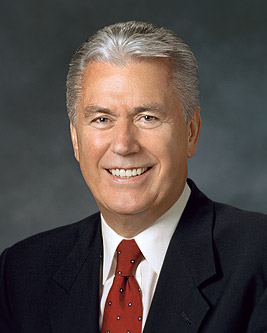I felt good about this lesson when it was over. My attempt to accommodate my visually impaired student was successful, and the discussion was pretty great. The student in class who was a former seminary teacher texted me afterward to thank me for it. It’s nice to have a good lesson every now and again.
I started out with my “look over what you read and share something you liked” bit again. It works well with this group, and since some of the ladies are slackers who don’t read, it gives them a chance to look at and preview the material before I dive in. I’m not a good “from scratch” teacher. I really rely on students having some background on the material before I begin, so this is an easy way for me to get them into the material and thinking.
D&C 30
- Read vv1-2 aloud – look for things David did that may have made him more vulnerable to being deceived.
- What had he NOT done
- What does it mean to have our minds on the things of the earth more than the things of the Lord?
Read this quote:
“It seems a little strange that so soon after the wonderful manifestation which [David Whitmer] had received and the witnessing of the outpouring of the Spirit at other times, that he would forget, but human nature is such that all of us need constant reminding of our responsibilities or we are likely to lapse into some indifference. The need of constant prayer and concentration of our thoughts on the things of the kingdom, and sincere attention to duty, is apparent with most of us, lest we slip. How frequently the Lord has had to caution his people against the weaknesses of the flesh!” (Joseph Fielding Smith, Church History and Modern Revelation, 2 vols. [1953], 1:146).
- What are you doing to constantly remind yourself of your responsibilities — to keep yourself from becoming complacent?
Read D&C 4, qualities of a disciple. Remember this revelation was given to Joseph Smith, Sr., who did not serve a mission. How does this apply to you and me?
At this point I handed out a copy of this discipleship self-assessment. I explained to the class that this was a private assessment, and that I’d not be asking for it or ask them to share anything they wrote on it, but it was a good way for us to see what areas we can improve.
I made an extra-large print version of this handout for my visually impaired student. I used a heavy, bold font because I read that darker print was easier for the visually impaired to read. I tried to download a special font for visually impaired persons, but it proved difficult, so I ended up using something I had. I printed the words with letters at about an inch or so tall, which put two sentences per page. The handout ended up being around 20 pages for her, but she was so thrilled that she was able to participate it was worth it.
Some people may not be interested in going this route, but our bishop has asked us to memorize D&C 4 as a ward, so I’m really pushing it in our class. We read this section aloud as a group every week, and the material tied in so nicely with the idea of discipleship I was trying to push this time, it just seemed to fit.
After this was over, I did the object lesson from the manual that went with D&C 30:5. My youngest student (in her fifties) came up and held up my junky, heavy laptop. This teaching method proved especially effective for my non-member, who had lots to add about support and how we can do more as a group than alone. It may have helped that I called her up to be the supporter, but whatever it was, she seemed to really get this part of the lesson.
Closing
I had been able to keep the self-assessment pretty light in tone, but I didn’t want anyone to leave class discouraged or overwhelmed because they have work to do, so to close I gave the students a copy of this quote from Elder Uchtdorf:
“You are loved. You are dear to your heavenly parents. The infinite and eternal Creator of light and life knows you! He is mindful of you. Yes, God loves you this very day and always.
“He is not waiting to love you until you have overcome your weaknesses and bad habits. He loves you today with a full understanding of your struggles. He is aware that you reach up to Him in heartfelt and hopeful prayer. He knows of the times you have held onto the fading light and believed—even in the midst of growing darkness. He knows of your sufferings. He knows of your remorse for the times you have fallen short or failed. And still He loves you.
“And God knows of your successes; though they may seem small to you, He acknowledges and cherishes each one of them. He loves you for extending yourself to others. He loves you for reaching out and helping others bear their heavy burdens—even when you are struggling with your own.
“He knows everything about you. He sees you clearly—He knows you as you really are. And He loves you—today and always!…
“He loves you not only for who you are this very day but also for the person of glory and light you have the potential and the desire to become.
“More than you could ever imagine, He wants you to achieve your destiny—to return to your heavenly home in honor” (President Dieter F. Ucthdorf, Living the Gospel Joyful, Oct. 2014).
I encouraged the students not to become discouraged because we all have a very long way to go on our paths of discipleship, but let the love our Father has for us work in us to encourage us to do as President Hinckley used to say, “try a little harder to be a little better”.


